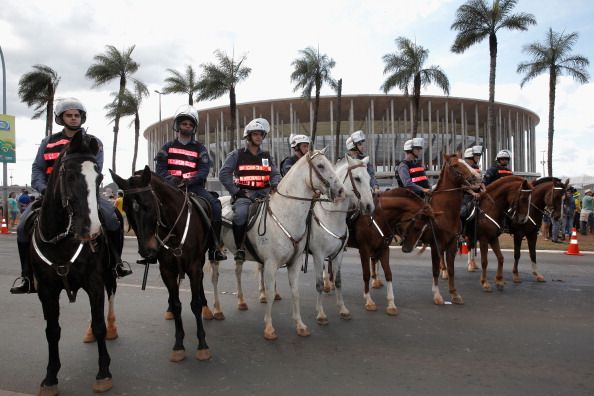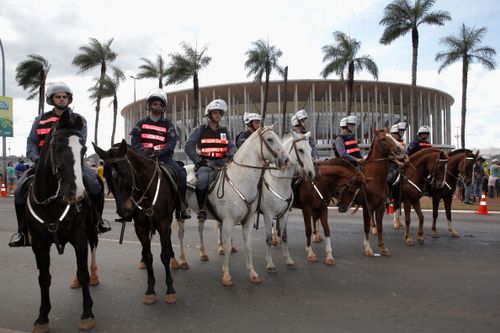
Rousseff holds crisis talks on Brazil's mass protests

Brazil’s embattled president, Dilma Rousseff, held crisis talks on Friday to weigh how to respond to two weeks of mass street protests that erupted a year ahead of the World Cup.
An estimated 1.25 million people marched in scores of cities on Thursday to demand better public services and slam the huge cost of staging the cup, and two people have now died in incidents related to the protests.
Rousseff, who remains personally relatively popular while the protesters criticise the political class as a whole, summoned her ministers to seek ways to seize back the initiative.
“We must understand that these demonstrations are calling for change. They signal popular dissatisfaction,” said the president’s chief of staff, Gilberto Carvalho.
“This big group of Brazilians who emerged from exclusion to become consumers want new rights and this is all good,” he added.
More than 40 million Brazilians are estimated to have been lifted out of poverty and to have entered the lower middle class in the past decade, but growth is slowing and popular frustration mounting.
The demonstrations have overshadowed football’s Confederations Cup, which Brazil is currently hosting and which is seen as a dry run for next year’s World Cup tournament.
Many Brazilians are angry over the multi-billion-dollar expense of preparations for the World Cup and for the 2016 Summer Olympics.
Several protests have been held outside stadiums and a mammoth march is scheduled for June 30 to Rio’s iconic Maracana stadium on the day of the Confederations Cup final.
Thursday’s marches were largely peaceful but were marred by violence and acts of vandalism by small groups of hardliners, notably in Rio and Brasilia.
Two fatalities were reported.
An 18 year-old man was struck by a car while protesting in the southeastern city of Ribeirao Preto and a 54-year-old woman died of heart attack after an explosive device detonated in the northern city of Belem.
In Rio, where some 300,000 people rallied in the city center, Mayor Eduardo Paes on Friday reviewed the damage from violence that left 62 people injured, including eight police officers.
“I have no doubt that most of the demonstrators had good intentions and only wanted to assert their rights,” he told a press conference at City Hall.
“Unfortunately, groups — a minority — through their acts of vandalism, have tarnished this demonstration which is part of the city’s democratic history,” he said.
He said public buildings and bank branches were damaged, shops looted, seven cars destroyed and the biggest Samba cultural center, which had been fitted with giant screens to watch Confederations Cup matches, were gutted.
Firesd also damaged some of the buildings at the Sambadrome where Rio’s sumptuous Carnival parades are held.
“This has very little to do with democracy,” the mayor said while Jose Mariano Beltrame, Rio state security chief, said eight people were detained in connection with the violence.
Meanwhile world football’s governing body FIFA said it has no plans to scrap the Confederations Cup and that no team wants to pull out.
“At no stage has FIFA considered or discussed abandoning the Confederations Cup with the local authorities,” FIFA media chief Pekka Odriozola said. “We are monitoring the situation with the authorities.”
“We support the right of free speech,” he added. “We condemn violence.”
The marches began two weeks ago after a rise in mass transit fares, but quickly expanded into a wider protest against corruption in the world’s seventh largest economy.
The movement has no political hue and no clearly identified leadership.